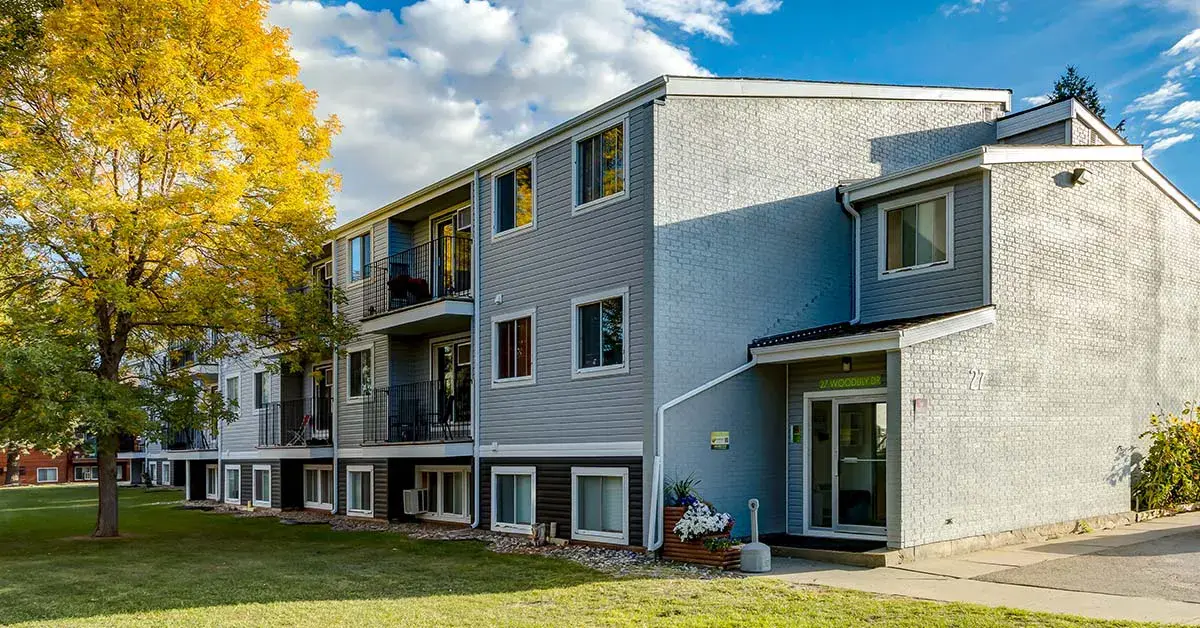Why We See Opportunity in the Workforce Housing Market

With climbing inflation and rising interest rates dominating headlines, the housing market has become top-of-mind for Canadians from coast to coast. Ensuring adequate, affordable supply is a complex problem with no easy solution, and tackling it requires input and action from all areas of the housing industry, as well as various levels of government. From our inception, Avenue Living has focused on providing safe, well-managed housing at affordable prices — a focus that has allowed us to weather several economic challenges, and one that we know is a key part of the housing spectrum, now and in the future.
For investors, there is potential opportunity in existing supply, especially in assets that serve the workforce housing demographic — the focus of our Core Trust. This group, which makes up approximately 40 per cent of the private rental market, is anticipated to seek more affordable solutions as inflation and rising interest rates delay or disincentivize homeownership. Several external factors continue to bolster the strength of the workforce housing market, from population growth to the geopolitical and economic environment. Here, we explore those factors and their impact on our model.
INFLATION
The conversation around housing supply often raises the need for new builds. But with inflation at 6.8 per cent in April, and supply chain challenges making project plans unpredictable, construction of new buildings is not an immediate answer to the housing affordability problem. Avenue Living is in a unique position, as we acquire and refurbish existing housing stock to create safe, comfortable, and affordable homes for renters. As the cost of new builds continues to rise — and take rents with them — renovating existing property becomes a quicker, more efficient way to inject appealing inventory into the market at a reasonable price point. Renovations require an investment of approximately 10 to 15 per cent of the asset value, mitigating the risk of rising costs and allowing us to continue to provide safe, comfortable homes at an affordable rent, on a shorter timeline, and to potentially generate more immediate returns for our investors.
AFFORDABILITY
Housing affordability is top-of-mind for residents, as the cost of home ownership has risen out of reach for many. The Canadian Mortgage and Housing Commission (CMHC) dictates that for housing to be considered “affordable,” a household must “spend less than 30 per cent of pre-tax income on adequate shelter.” Avenue Living residents, on average, earn $56,000 per year and spend roughly 23 per cent of their income on rent, which is significantly lower than the affordability construct from CMHC.
IMMIGRATION
The government of Canada has an ongoing plan to increase immigration levels, as a way to increase our workforce and help the country recover from the economic challenges of the pandemic. This plan aims to attract over 400,000 people to Canada a year through 2024. In 2021, we welcomed a record number of newcomers — 401,000 people made Canada their home, the largest influx ever. Alberta is consistently one of their top destinations, with Calgary and Edmonton as the fourth and fifth most popular cities among newcomers to Canada. Many newcomers rent when they arrive in Canada and fit into our target demographic, with the median pay for those arriving in Canada in 2018 sitting at $31,800.
CHANGING RESIDENT PREFERENCES
The pandemic changed how individuals view their homes, but beyond that, people are making space a priority, a trend that is becoming increasingly evident in rental patterns. We have seen more interest in suburban locations with larger floor plans — especially townhomes — across our portfolio, as inflation and rising interest rates cause people to put off home ownership and opt for more spacious rentals. Our experience as active property managers also tells us residents are seeking institutional-quality service, something rarely paired with affordability, but that we are committed to delivering.
LABOUR MARKET SHORTAGES
The construction industry has been struggling with labour shortages for several years, and in the past year, those shortages have become more extreme. The 2021 BuildForce Canada report suggests the construction industry could be short as many as 81,000 workers by 2030 as it tries to keep up with retirements and increased demand, especially for housing. Avenue Living’s strategy of purchasing built assets and making capital improvements shields us from much of the risk that comes with that labour shortage.
OPPORTUNITY IN THE WORKFORCE MARKET
Our focus on multi-family residential, and particularly the workforce housing demographic, has historically shown opportunity for investors interested in real estate; a trend we believe will continue. As inflation and interest rates compel people to consider renting long-term, Avenue Living continues to set itself apart through strategic acquisitions, value-add capital improvements, and an unparalleled focus on the resident experience.
This commentary and the information contained herein are for educational and informational purposes only and do not constitute an offer to sell, or a solicitation of an offer to buy, any securities or related financial instruments. This article may contain forward-looking statements. Readers should refer to information contained on our website at https://www.avenuelivingam.com/forward-looking-statements for additional information regarding forward-looking statements and certain risks associated with them.


